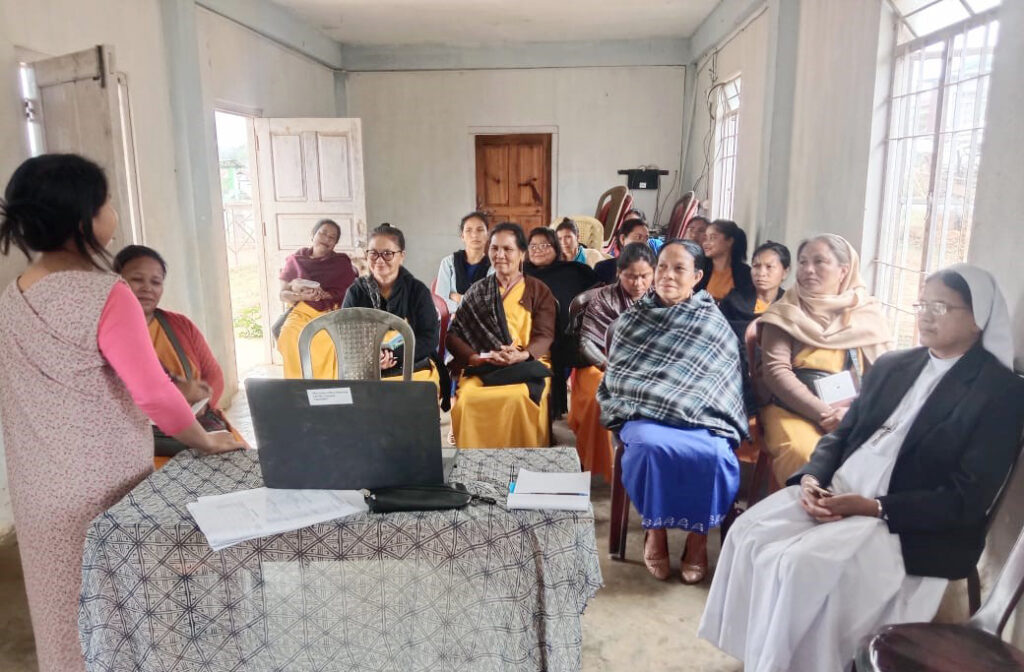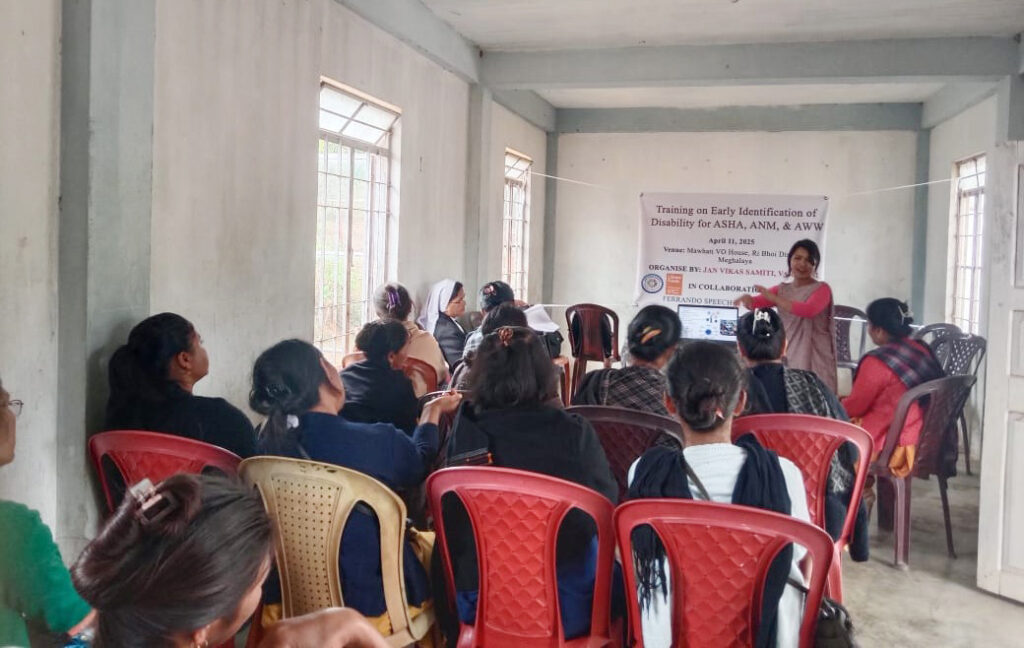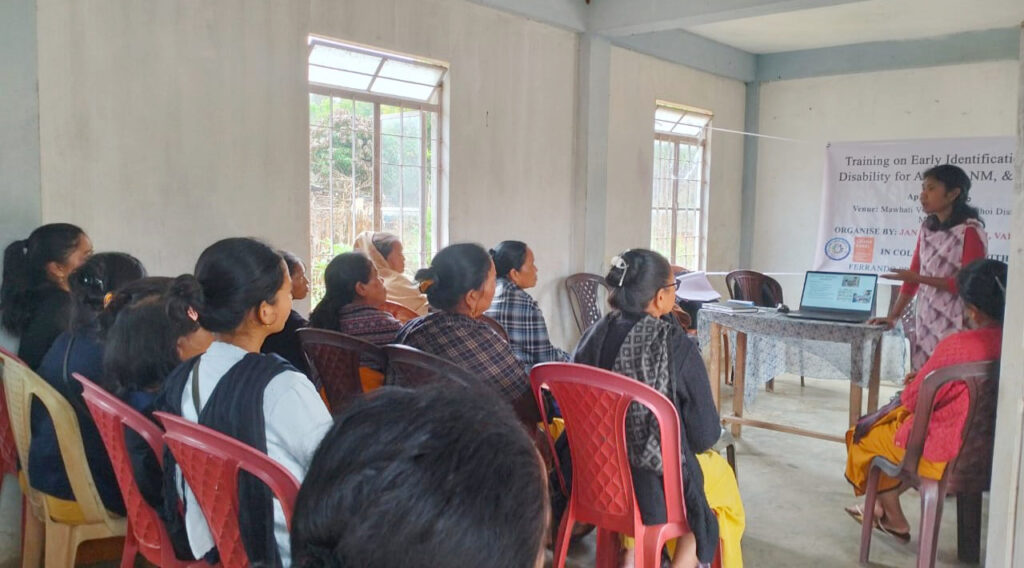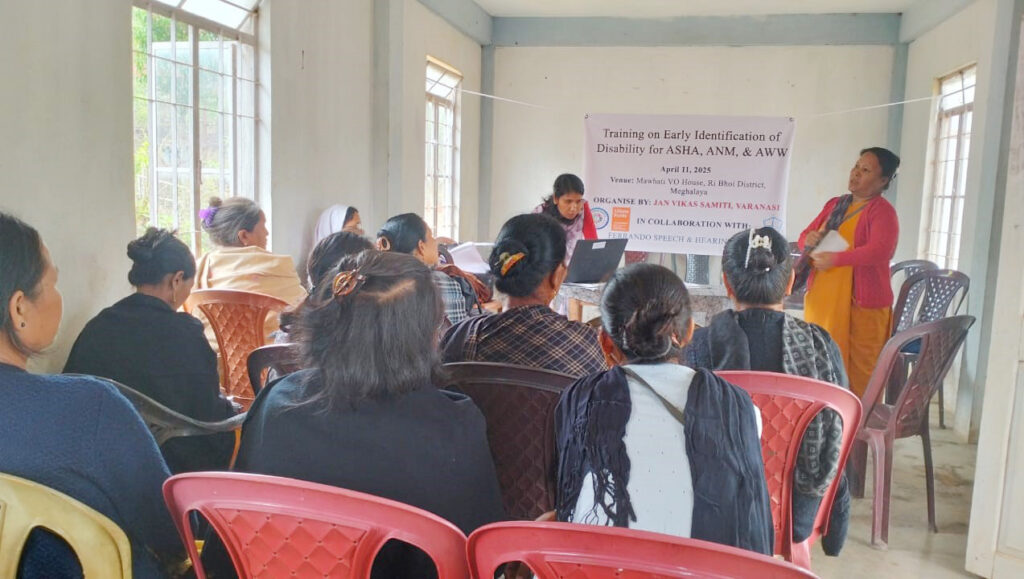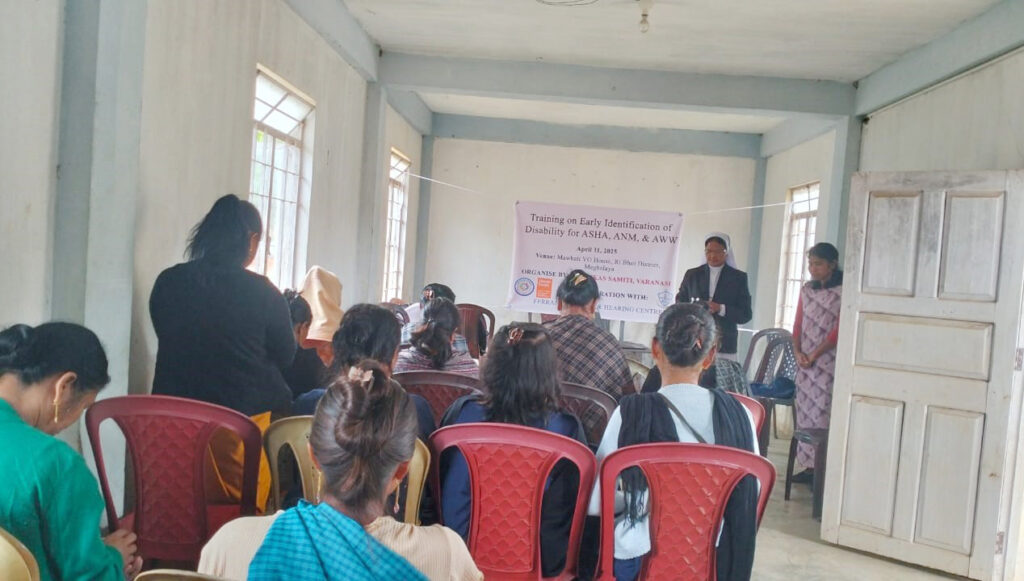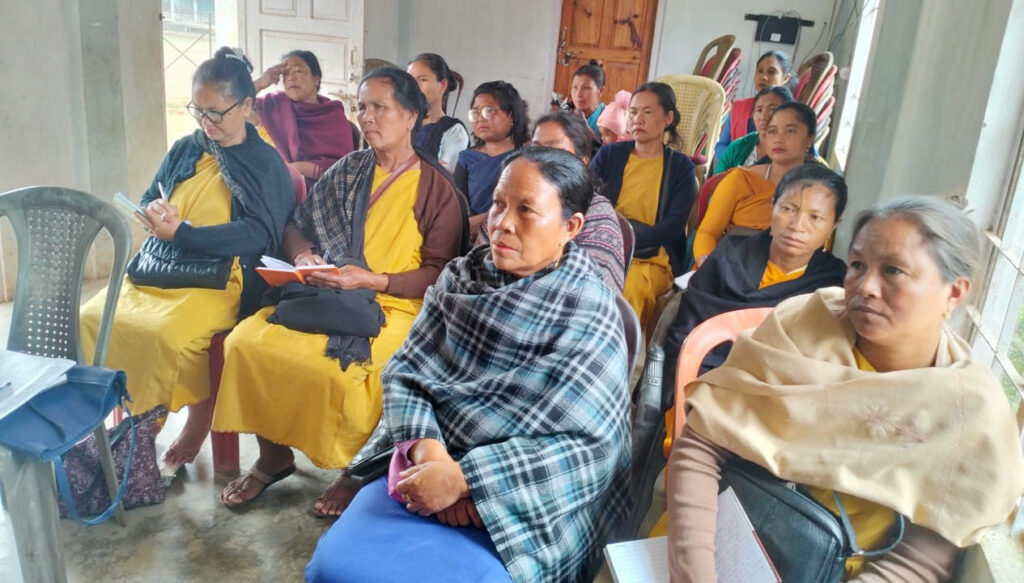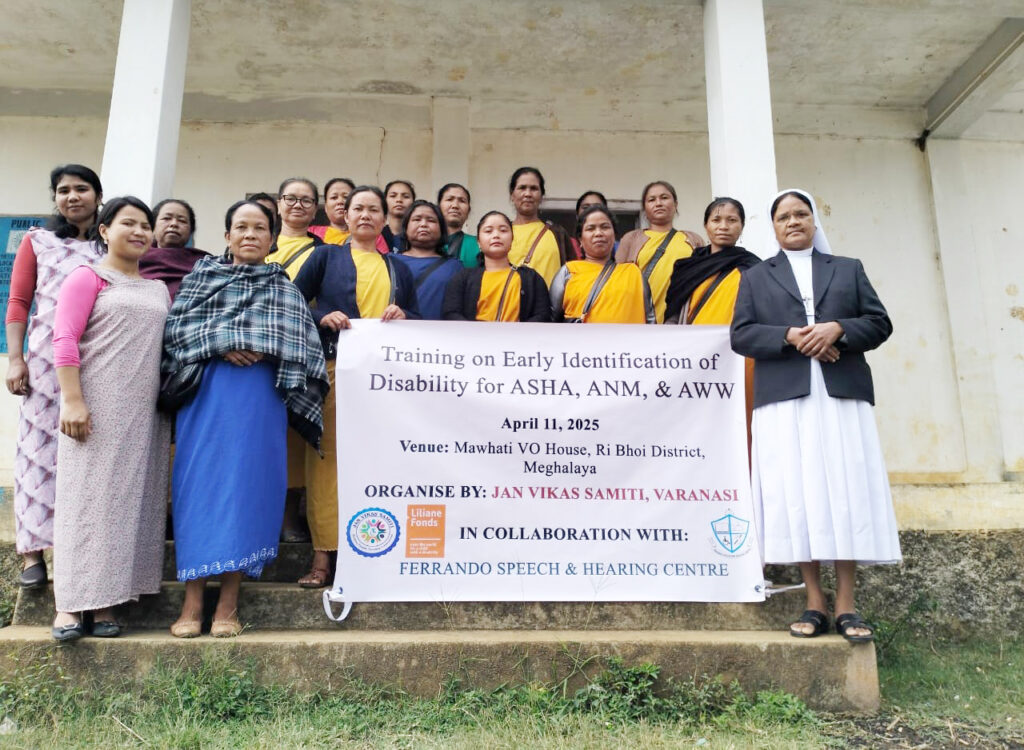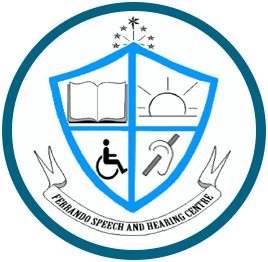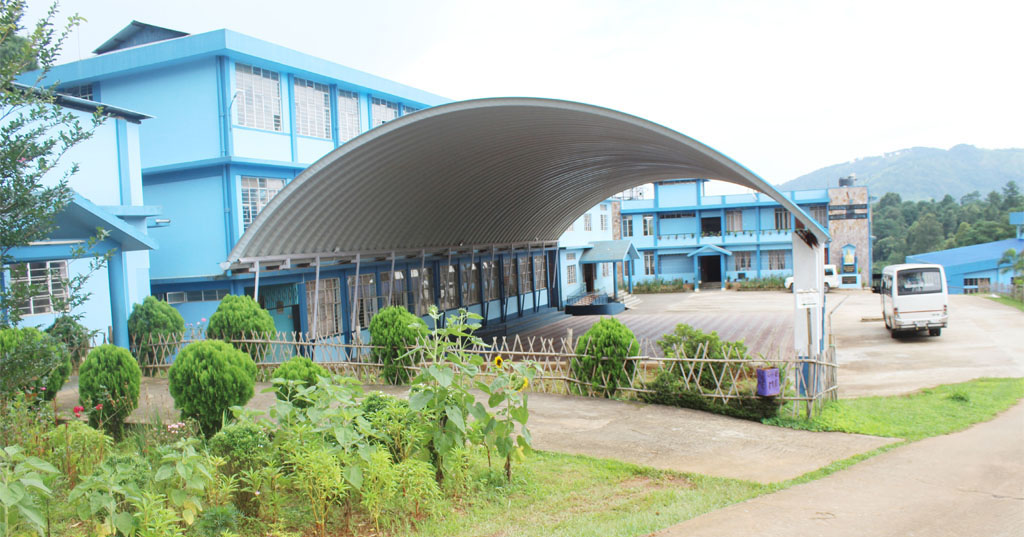Early Identification of Disability
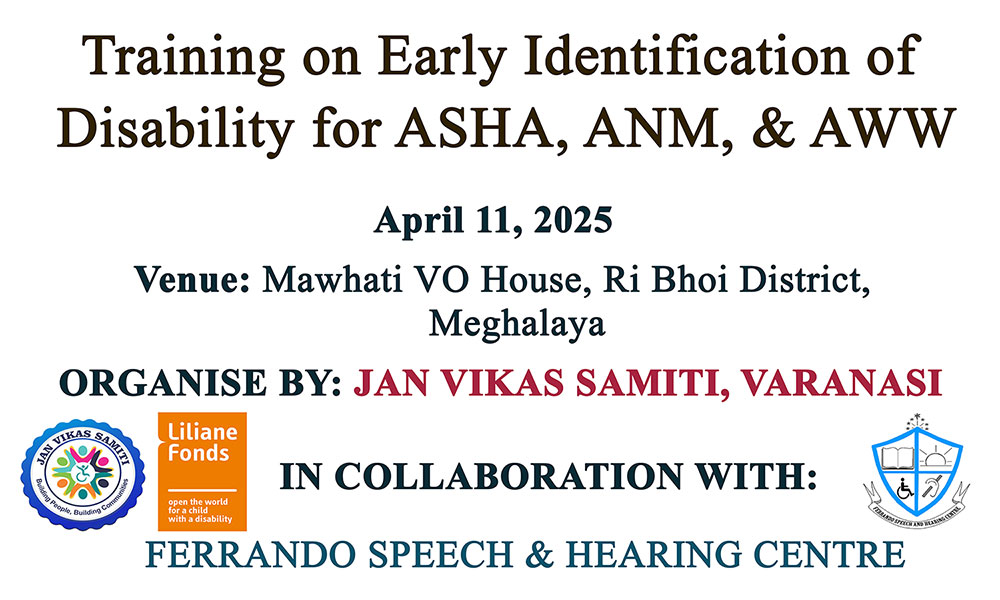
On 11th April 2025, a one-day training program on Early Identification, was organized by Jan Vikash Samiti Varanasi, in collaboration with Ferrando Speech and Hearing, at Mawhati for ASHA Workers, ANMs and AWWs. The primary focus of the training was to enhance the participants’ abilities to identify early signs of disabilities, malnutrition, developmental delays, and high-risk pregnancies. The goal was to equip these frontline health workers with the knowledge and tools required for early intervention and referral of health concerns, with a special emphasis on maternal and child health.
The training was conducted by Miss Colety Mawlong and Miss Lavanya Marwein, experts in maternal health and disability identification. They provided comprehensive insights into various types of disabilities, including physical, intellectual, sensory, and speech disorders, along with practical guidance on early identification techniques. This was particularly important for workers in rural and remote areas where healthcare resources may be limited and early detection is crucial for improving outcomes.
The session began with an overview of the roles and responsibilities of ASHA, ANM, and AWW workers in the community. Emphasis was placed on the importance of collaboration among these three groups to ensure that health concerns are identified early and appropriately addressed. The participants were given tools and knowledge to work together efficiently, ensuring that no health issue is overlooked.
One of the central topics of the training was the early identification of disabilities in children. Miss Lavanya highlighted various types of disabilities, including cerebral palsy, Down syndrome, autism spectrum disorder, and hearing and vision impairments. The session explained how to identify early warning signs of these disabilities in children and the importance of early screening. Additionally, speech and language delays were covered in detail, with participants learning how to observe and identify potential developmental issues that could require specialist intervention. Miss Lavanya stressed the importance of monitoring the health and development of children, as early identification can significantly improve the child’s quality of life through timely intervention.
Alongside disabilities, malnutrition was discussed as another major concern for children in rural areas. Proper nutrition plays a vital role in cognitive and physical development, and the training emphasized that by monitoring children’s growth, health workers could identify early signs of malnutrition and take action before it leads to developmental delays or more severe health issues.
In addition to disabilities, malnutrition, and pregnancy risks, the importance of documentation was also emphasized. Participants were taught how to use tools like referral slips, health registers, and the Mother-Child Protection Card to keep track of the children and pregnant women under their care. Proper documentation ensures that no cases are missed, and workers are able to follow up with the families they serve. It also helps in ensuring continuity of care and tracking the progress of any referrals made for specialized care.
A key feature of the training was its interactive approach. The resource persons engaged the participants in role-plays and case studies, which allowed the workers to practice identifying disabilities, screening for malnutrition, and assessing pregnancy risks. These activities helped reinforce the training material and gave the participants hands-on experience in using the tools and techniques they had been introduced to.
The training concluded with a discussion on community health education. ASHA Workers, ANMs, and AWWs were provided with strategies for conducting awareness sessions in their communities to promote early health checks and preventive measures. They were encouraged to reduce the stigma surrounding disabilities and malnutrition by educating families on the importance of early intervention and seeking professional help when necessary.
The outcomes of the training were highly positive. The participants gained a better understanding of how to identify a wide range of health issues early and ensure that children and pregnant women receive timely referrals. Additionally, the workers recognized the importance of collaboration and documentation in improving health outcomes within their communities.
Overall, the training was a success, with participants eager for follow-up sessions and continuous support in the field to help them apply what they had learned. The partnership between Jan Vikash Samiti Varanasi and Ferrando Speech and Hearing played a key role in providing comprehensive, practical training, which is expected to have a lasting impact on the health and well-being of women and children in the region.
